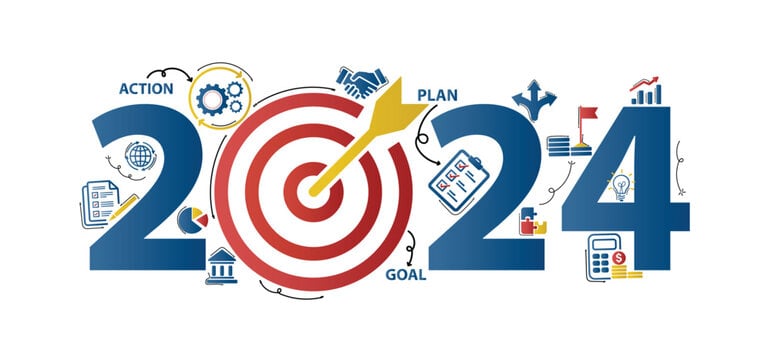Blog Posts
Life After Retirement: Staying Active and Engaged Financially and Socially
Retirement is often thought of as the finish line after decades of work, but in reality, it's the start of an exciting new chapter. At RetireWise, we believe that retirement isn't just about closing the door on your career but opening doors to new opportunities, experiences, and ways of living. Whether you're concerned about finances or eager to stay socially connected, staying active and engaged is key to a fulfilling life after retirement
The Role of Annuities in a Retirement Portfolio
Planning for retirement can feel overwhelming, especially when you’re hearing so many unfamiliar or confusing financial terms. One option that often comes up in conversations about retirement planning is annuities. But what exactly are annuities, and how can they play a role in your retirement portfolio? Let’s explore the basics of annuities and why they might be an important piece of your financial puzzle
The Benefits of a Financial Advisor in Retirement Planning
Retirement can feel like both an exciting and daunting milestone. After years of hard work, you're finally ready to enjoy your golden years. However, navigating the financial complexities of retirement can be challenging. That’s where a financial advisor can come in and be a valuable partner, helping you make informed decisions and maximize your money in retirement
The Bucket Plan: Organizing Your Assets for Retirement Phases
The Bucket Plan is a smart way to manage your retirement savings by splitting them into three separate "buckets," each designed for a different purpose and timeframe. This strategy helps reduce risks, keeps cash handy when you need it, and ensures you have a steady income throughout your retirement. The three buckets are called the Now Bucket, the Soon Bucket, and the Later Bucket
IRA Showdown: Traditional vs. Roth – Which Is Right for You?
Planning for retirement can often feel like navigating a complex maze, with countless decisions to make along the way. One important choice to make is selecting the right Individual Retirement Account (IRA). Two popular options stand out: the Traditional IRA and the Roth IRA. Understanding the differences between these accounts and how they align with your financial goals is crucial for maximizing your retirement savings. Let’s break down the key features, benefits, and drawbacks of each type to help you decide which IRA is right for you.
Financial Mapping: Your Key to a Secure Retirement
Choosing immediate fun over future safety isn't just about having different priorities; it can be a mistake many people make without realizing. However, the consequences of neglecting retirement planning can be severe. Financial mapping for retirement is not just advisable; it's essential. Here's why you should dedicate as much, if not more, time to planning your retirement as you do your next vacation.
Minimizing Taxes in Retirement
Retirement planning isn't just about saving enough money; it's also about maximizing what you are able to keep. Taxes play a significant role in determining your net income during retirement. Minimizing taxes becomes a crucial aspect of retirement planning to ensure that your hard-earned savings stretch as far as possible. Let's explore some strategies for how to minimize taxes in retirement.
Long-Term Care Insurance: Is It Worth It?
As life expectancy continues to increase, the need for extended care in later years becomes more likely. Long-term care insurance is a retirement planning solution to reduce the financial burden associated with extended care needs. However, the decision to invest in long-term care insurance warrants careful consideration. Is it truly worth it? Let's delve into this question
The Impact of Inflation on Your Retirement Savings
Amid the retirement planning process, one crucial factor is often overlooked: inflation. This silent yet powerful force can significantly affect the purchasing power of your retirement savings over time, potentially altering the landscape of your golden years. Let's explore inflation and its potential impact on your retirement savings in the long run.
Healthcare Costs in Retirement: Planning for the Unpredictable
https://www.retirewisepro.com/Retirement marks a significant transition in life, a time when you trade the daily grind of work for the leisurely pursuits of the golden years. While this stage of life brings with it newfound freedom and opportunities, it also introduces a host of financial considerations, especially healthcare costs. As retirees, it's important to plan for the unpredictability of healthcare expenses to protect your well-being and financial security. At Retire Wise, we understand the importance of navigating these waters and help you ensure that your retirement years truly allow you to shine.
The Psychological Transition to Retirement
Retirement is far more than just a financial milestone. It’s a major time of transition that requires careful planning and consideration in all aspects of your life. Our comprehensive approach to retirement planning goes through simple financial planning, but it also encompasses the non-financial aspects of retirement, too. We believe that true fulfillment in retirement comes from balancing both your financial security and your personal well-being so you can truly enjoy your golden years.
Plan for Tax-Smart Retirement Income
In addition to extending the life of your retirement resources, careful tax planning may result in lower retirement taxes.
Even with Social Security, pensions, and other nonportfolio income, most retirees don't have enough invested to live on interest alone, so eventually they'll have to start selling off their investment holdings. Finding a solution to minimize the impact of taxes is difficult. You cannot spend every dollar that is lost to taxes, after all.
New Year, New Financial Beginnings: Financial Planning for the Year Ahead
As the new year unfolds, it's an opportune time to reflect on our financial health and set goals for the future. Financial planning is not just about managing money; it's about aligning your financial decisions with your life goals and values. Whether you're looking to save for retirement, reduce debt, or invest in your future, the new year is the perfect time to start.
Secure Act 2.0: Enhancing Retirement Security and Beyond
Retirement planning is a crucial aspect of our financial journey, and staying informed about changes in legislation is essential for securing a stable future.
In the ever-evolving landscape of retirement planning and financial security, legislative changes play a crucial role in shaping the future for retirees and workers alike. One such significant development is the Secure Act 2.0, a follow-up to the original Secure Act, designed to further enhance retirement security and address the changing needs of individuals in the modern world. In this blog post, we'll delve into the key changes introduced by the Secure Act 2.0 and their potential impact on retirement planning
Stop The Fees From Eating Into Your Old 401K!
Unleash Your Old 401(k)/403(b), TSP, TRS or other past employer plans, roll it over and secure Your Financial Future!Unleash Your Old 401(k)/403(b), TSP, TRS or other past employer plans, roll it over and secure Your Financial Future!<
How Do You Stack Up For Retirement?
How do you think you compare to others in retirement, and how do you feel about it? It's probably a good thing if you consider yourself to be ordinary.
The Debt Ceiling & You
Three Wealth Planning Strategies for Every Stage of Life
Wouldn't it be nice if retirement came with no muss and no fuss? Unfortunately, this is not always the case. Years of planning are frequently required. But, hopefully, this checklist will provide you with the crucial steps to follow at each period of your life, allowing you to retire when you choose and live the retirement of your dreams.
Take A Look At New RMD Rules
Financial planning and wellbeing
The current cost of living crisis, against a backdrop of bleak economic predictions, is a significant cause for concern for millions of people.
Living standards have fallen at the steepest rates in 60 years, household incomes are expected to drop by 4.3% in 2022-2023, and people are being forced to reduce their spending.
With economic predictions over the next couple of years also looking grim, it’s easy to see why people feel powerless and frustrated.
Could financial planning hold the answer?



























